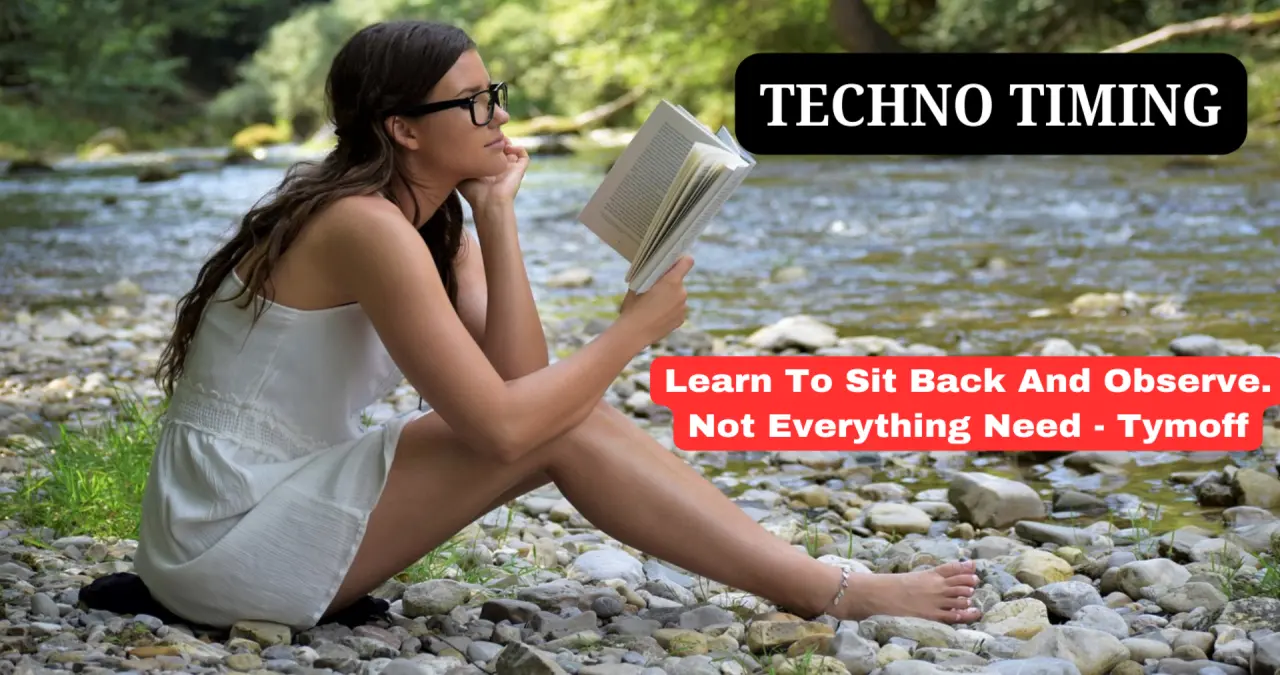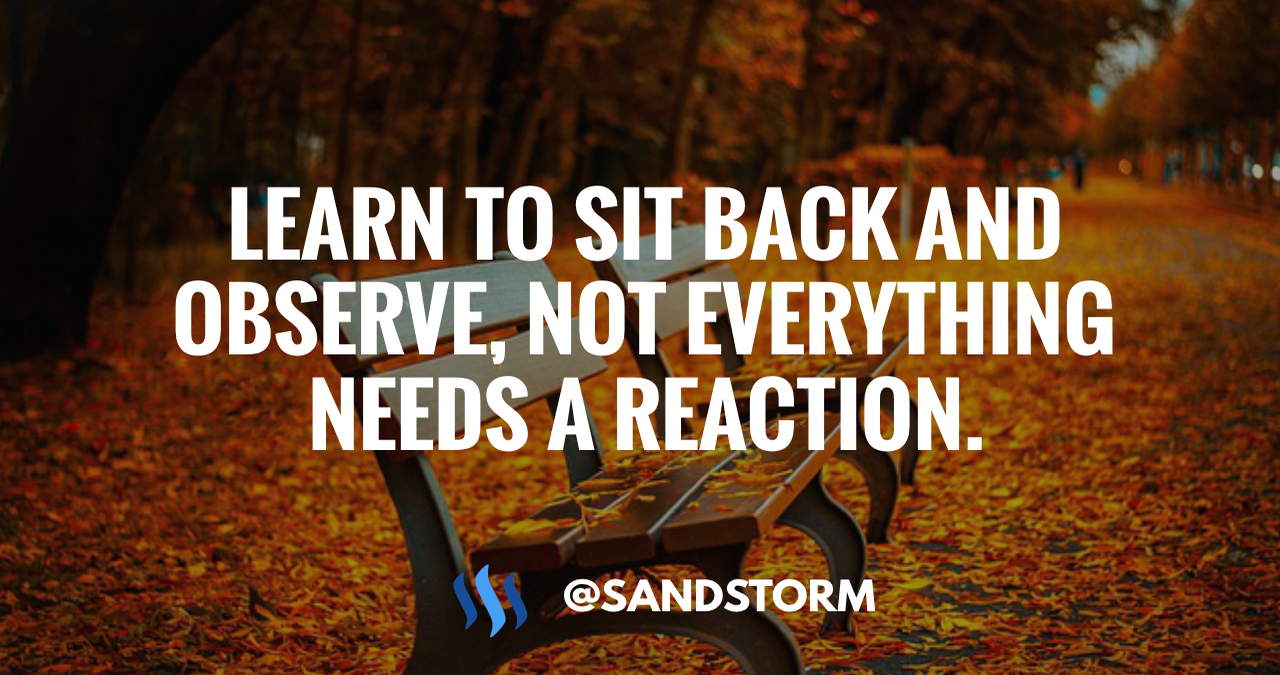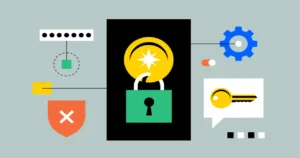Learn to Sit Back and Observe: Not Everything Needs Action

Learn to Sit Back and Observe
Learn to Sit Back and Observe: In the fast-paced world we live in, there is often an intense pressure to act on everything immediately. Whether it’s responding to an email, taking on a new project, or dealing with interpersonal issues, the instinct to jump into action can be overwhelming. However, not everything requires immediate action. Sometimes, the best thing you can do is simply sit back and observe, allowing time and reflection to guide your next steps. This ability to pause, step back, and assess situations can be incredibly powerful in fostering better decision-making, reducing stress, and helping you maintain a more balanced perspective.
The Art of Observation
Observation is a skill that many people overlook in today’s high-energy, high-output environment. We’ve been conditioned to believe that in order to be productive or effective, we need to constantly be doing something. However, the act of observing—being present without feeling the need to act—can provide us with valuable insights and help us avoid unnecessary mistakes.
When you learn to sit back and observe, you allow your mind to clear, making space for a deeper understanding of the situation at hand. This doesn’t mean you’re passive or disengaged; rather, you’re actively taking in information and letting things unfold naturally before deciding what your next step should be. By resisting the urge to immediately jump into action, you open yourself up to new perspectives that you may have missed in the rush to act.
The Power of Patience and Perspective
Sometimes, in our eagerness to solve problems or improve situations, we forget the power of patience. Not every issue needs to be addressed in the moment it arises. By stepping back and observing, you give yourself the gift of time—a chance to think more clearly, process emotions, and gain perspective.
For example, in workplace scenarios, rather than reacting hastily to conflicts or challenges, stepping back and reflecting can help you approach the situation more thoughtfully. This doesn’t mean you should avoid conflict, but rather that you should approach it with a calm and composed mindset. The ability to assess the situation before making a move often leads to better outcomes and fewer regrets. Patience and observation allow you to wait for the right moment to act, rather than rushing into decisions that may not serve your best interests.
When Action Isn’t Necessary
In many situations, the need to act may be driven by external pressure or societal expectations, rather than genuine necessity. This is especially true in modern social environments where we feel compelled to share opinions, offer solutions, or act in response to every piece of information we encounter. Yet, it’s important to recognize that not everything requires a reaction.
Sometimes, doing nothing can be the most powerful action of all. In relationships, for instance, a friend might be going through a difficult time, and while you may want to offer advice or comfort, there are times when sitting back and simply listening is the best support you can provide. The same principle applies in professional settings, where the impulse to respond to every email or attend every meeting can lead to burnout and decreased productivity. By learning to observe and choose when to engage, you conserve your energy for when it truly matters.
The Impact of Overreaction
Overreaction can be a major obstacle to effective decision-making. In an environment where emotions often run high, it’s easy to fall into the trap of reacting impulsively. However, such reactions are often rooted in assumptions or misunderstandings, which can cloud your judgment.
By learning to sit back and observe before reacting, you allow yourself to process the situation without letting emotions drive your actions. When you take the time to fully assess the circumstances, you are more likely to make decisions based on logic and understanding, rather than knee-jerk responses that could lead to regrettable outcomes.
Overreaction is often born out of a desire to control or fix things, but sometimes, the most effective solution is simply to let things unfold on their own. In these cases, stepping back allows you to regain a sense of clarity and perspective, which can ultimately lead to better, more thoughtful actions.
The Benefits of Mindfulness
Mindfulness is a concept that is increasingly gaining attention in today’s world. It involves being fully present in the moment and observing your thoughts, feelings, and surroundings without judgment. Practicing mindfulness can help you develop the ability to sit back, observe, and resist the urge to act immediately. This practice can be especially useful in managing stress, as it helps you stay grounded and focused even in challenging situations.
When you learn to be mindful, you cultivate a deeper awareness of your emotions and reactions. This allows you to respond more thoughtfully, rather than reacting impulsively. Mindfulness can also improve your overall well-being by promoting a sense of calm and clarity. By incorporating mindfulness into your daily routine, you can develop the habit of sitting back and observing, rather than rushing to act without fully understanding the situation.
How Sitting Back Leads to Better Decision-Making
Decision-making is a crucial aspect of our lives, and yet, it’s something many of us struggle with. Whether it’s deciding on a career move, making a financial investment, or choosing how to respond to a personal situation, the pressure to make the “right” decision can be intense. However, rushing into decisions without taking the time to observe and reflect can often lead to poor choices.
Sitting back and observing allows you to gather more information, consider different perspectives, and evaluate the potential outcomes of your choices. This process can help you avoid impulsive decisions driven by emotion or external pressure. By taking a step back and giving yourself the space to think, you are more likely to make informed decisions that align with your long-term goals and values.

How to Cultivate the Habit of Observation
Learning to sit back and observe is not something that happens overnight. It requires practice and intentionality. If you find yourself constantly reacting to situations or feeling overwhelmed by the need to act, there are several strategies you can use to cultivate the habit of observation.
One effective method is to develop a mindfulness practice, such as meditation or deep breathing exercises. These practices can help you quiet the mind and focus on the present moment, which makes it easier to observe your thoughts and reactions without immediately acting on them. Additionally, setting aside time each day for reflection—whether through journaling, quiet contemplation, or simply taking a walk—can help you develop a more balanced approach to decision-making.
Another helpful strategy is to challenge yourself to pause before reacting. When you feel the urge to jump into action, take a few moments to breathe, reflect, and observe the situation. This simple act of pausing can make a significant difference in how you respond, allowing you to approach the situation with greater clarity and composure.
Embracing the Flow of Life
Life has a natural rhythm, and sometimes, the best thing you can do is allow things to unfold on their own. Instead of trying to control every aspect of your life or constantly striving for perfection, try to embrace the flow of life. This doesn’t mean you should abandon all responsibility or give up on your goals, but rather that you allow yourself to be more flexible and open to the natural ebb and flow of events.
By learning to sit back and observe, you can become more attuned to this flow. Instead of forcing things to happen, you begin to trust that things will fall into place when the time is right. This mindset can reduce stress, increase your sense of peace, and help you develop a deeper understanding of yourself and the world around you.
Creating Space for Growth
Sometimes, we can become so focused on taking action that we overlook the importance of growth and learning. However, growth often occurs in the spaces between action—during the times when we pause, reflect, and allow ourselves to process our experiences.
When you take the time to sit back and observe, you create space for personal growth. This period of reflection allows you to learn from your experiences, gain new insights, and develop a deeper understanding of your own needs and desires. Rather than always focusing on the next task or challenge, you allow yourself to slow down and nurture your development.
Conclusion: The Power of Sitting Back and Observing
In conclusion, not everything requires immediate action. By learning to sit back and observe, you can cultivate greater patience, enhance your decision-making skills, and improve your overall well-being. This practice allows you to take a step back from the noise of daily life and gain perspective, ultimately leading to more thoughtful, deliberate actions. Whether you are navigating personal relationships, making career decisions, or simply managing day-to-day challenges, the ability to observe before reacting is a powerful tool that can help you live a more balanced and intentional life. So, the next time you feel the urge to rush into action, remember that sometimes, the most effective response is simply to sit back and observe.



